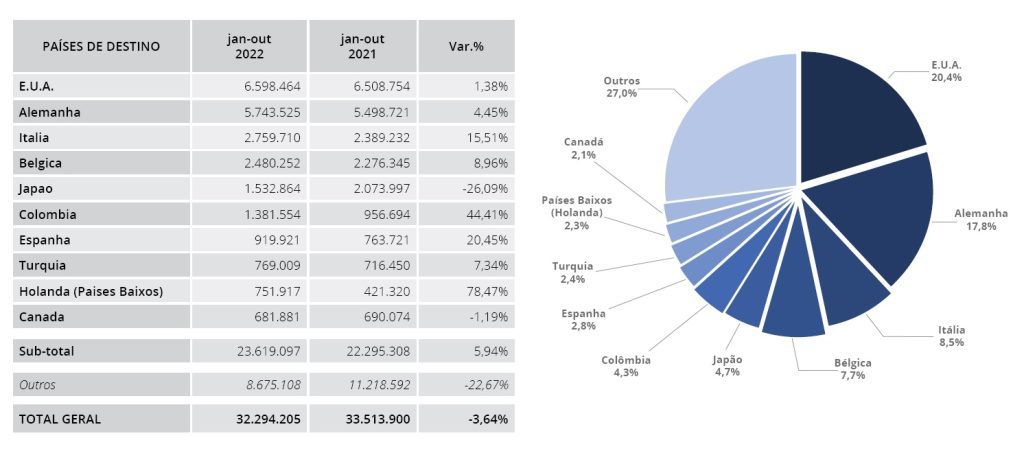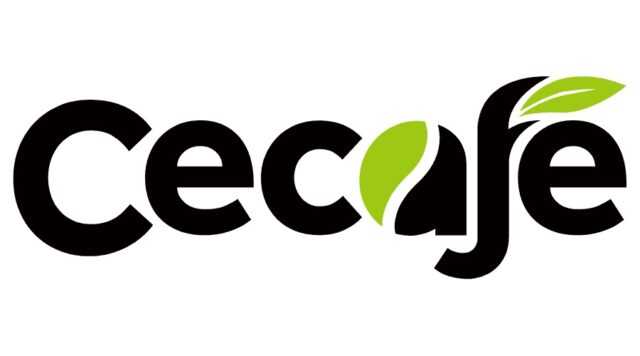MILAN – Coffee shipments from Brazil slowed down in October. According to Cecafé figures, export of all forms of coffee reached 3,471,370 60-kg bags, a 3.2% decrease from the same month last year and more than a million bags down from record levels two years ago. Green coffee exports fell 2.8% to 3,177,361 bags.
However, Arabica volumes rose by 3.3% to 3,066,686 bags reflecting this year’s higher production.
On the other hand, Robusta shipments were 63.3% lower despite this year’s record crop. This is due to a lower availability for export of this variety, which is in high demand in the domestic market. Sales abroad of processed coffee were also 7.2% down to 294,009 bags of (mostly) soluble coffee.
Sales abroad of processed coffee were also 7.2% down to 294,009 bags of (mostly) soluble coffee.
During the first 10 months of 2022, Brazil exported 32,294,205 bags of coffee in all forms, a 3.6% decrease from last year and the lowest level on record since 2018. Thanks to higher prices, export earnings rose to an all-time high of $7.6 billion, up 56.8% on year.
Thanks to higher prices, export earnings rose to an all-time high of $7.6 billion, up 56.8% on year.
According to Cecafé, the average price of Brazilian exports to date in 2022 is US$ 235.49 per bag, an increase of 62.7% compared to US$ 144.73 per bag between January and the end of October 2021.
Green coffee exports dropped to 29,136,704 bags, a 3.7% decrease. Arabica exports were up 3.5% to 27,803,493 bags. Robusta shipments fell sharply (-60.7%) to 1,333,211 bags, 2 million bags less compared to last year.
Sales of processed coffee were also down by to 3.1% to 3,157,501 bags.
The United States was the year’s top destination for Brazilian coffee, with 6.598 million bags and a volume 1.4% higher than in the same period in 2021. They were followed by Germany, with 5.744 million bags (+4.5%); Italy, with 2,760 million (+15.5%); Belgium, with 2.480 million bags (+9%) and Japan, with 1.533 million bags (-26.1%).
They were followed by Germany, with 5.744 million bags (+4.5%); Italy, with 2,760 million (+15.5%); Belgium, with 2.480 million bags (+9%) and Japan, with 1.533 million bags (-26.1%).
According to Cecafé’s president, Günter Häusler, difficulties in shipping the commodity persist, with “lower availability of containers, congested ships in ports in the Northern Hemisphere, mainly in the United States and Europe, difficulties in obtaining bookings, cargo rollovers and very high costs, which hinder the work of exporters.”


















